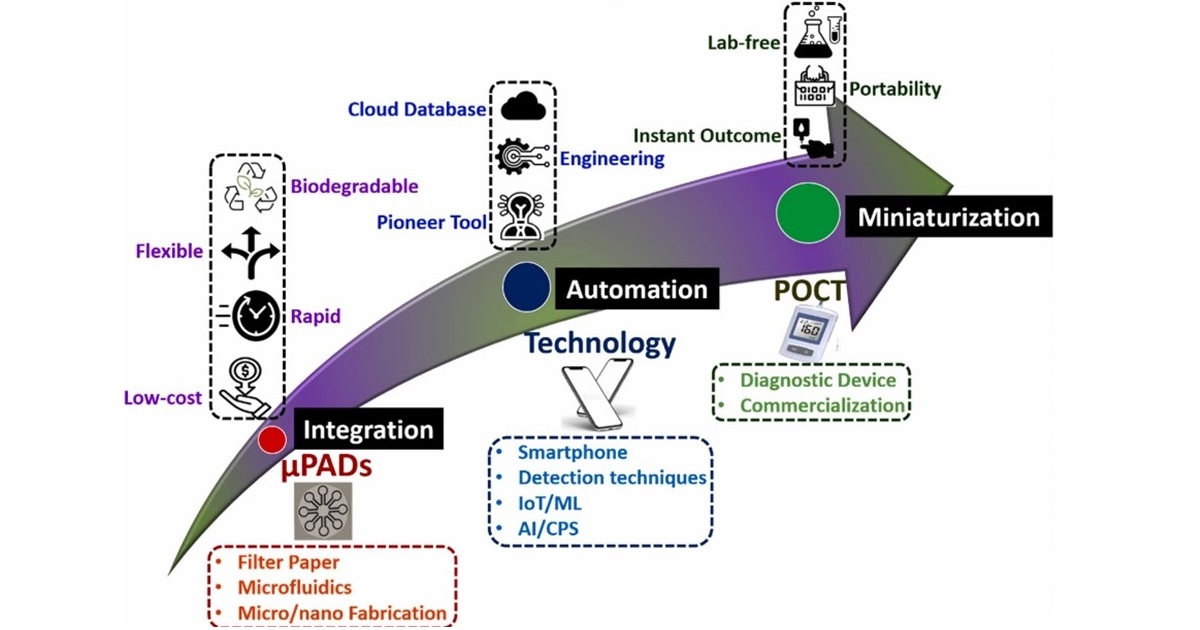Microfluidics-Based Biomedical Devices: Past, Present and Future
A special issue of Micromachines (ISSN 2072-666X). This special issue belongs to the section "B:Biology and Biomedicine".
Deadline for manuscript submissions: 30 June 2024 | Viewed by 294

Special Issue Editors
Interests: microfluidics; biosensors; point-of-care testing; biomedical devices; medical imaging techniques
2. Department of Biomedical Engineering, University at Buffalo, State University of New York (SUNY-Buffalo), Buffalo, NY 14260, USA
Interests: bioMEMS; lab-on-a-chip (LOC); microfluidics; droplet-based microfluidics; blood separation; micro PCR; micro SERS; sensors for LOC
Special Issues, Collections and Topics in MDPI journals
Special Issue Information
Dear Colleagues,
For decades, the discipline of microfluidics has been gaining widespread popularity in biomedical research, especially in design optimization, fabrication, and biological sample testing. Microfluidics has the potential to significantly change the way modern biology is performed, and its development of microfluidics has opened new possibilities for clinical diagnosis and biomedical research. Compared with traditional methods, microfluidics provide substantial benefits, including small device footprint, high efficiency, low sample consumption, and multifunction integration.
Most of the microfluidics’ main objective is to create technologies that improve researchers' capacities in biology and medicine. To date, microfluidic techniques have been extensively used for a range of biomedical applications for point-of-care-testing (POCT), such as single-cell analysis, high-throughput microflow cytometry, efficient sample pretreatment, biosensing, and organ-on-a-chip. These innovative microfluidic techniques are typically reported in "engineering" journals, or in publications whose readership is mostly composed of engineers and other researchers in the physical sciences. After all, the stated objective of almost every proof-of-concept study is to illustrate new approaches that support biologists in their routine research. Topics are not restricting to paper-based devices (µPADs), and authors can choose to emphasize polyimide, polymer, glass, and silicon-based microfluidic devices utilized for biomedical research in future.
Our Special Issue is devoted to the most recent technical developments and innovations in the field of microfluidics, predominantly in relation to biomedical applications for POCT.
Dr. Madhusudan B. Kulkarni
Prof. Dr. Kwang W. Oh
Guest Editors
Manuscript Submission Information
Manuscripts should be submitted online at www.mdpi.com by registering and logging in to this website. Once you are registered, click here to go to the submission form. Manuscripts can be submitted until the deadline. All submissions that pass pre-check are peer-reviewed. Accepted papers will be published continuously in the journal (as soon as accepted) and will be listed together on the special issue website. Research articles, review articles as well as short communications are invited. For planned papers, a title and short abstract (about 100 words) can be sent to the Editorial Office for announcement on this website.
Submitted manuscripts should not have been published previously, nor be under consideration for publication elsewhere (except conference proceedings papers). All manuscripts are thoroughly refereed through a single-blind peer-review process. A guide for authors and other relevant information for submission of manuscripts is available on the Instructions for Authors page. Micromachines is an international peer-reviewed open access monthly journal published by MDPI.
Please visit the Instructions for Authors page before submitting a manuscript. The Article Processing Charge (APC) for publication in this open access journal is 2600 CHF (Swiss Francs). Submitted papers should be well formatted and use good English. Authors may use MDPI's English editing service prior to publication or during author revisions.
Keywords
- droplet microfluidics
- nanotechnology
- wearable biosensors
- biomedical
- point-of-care-testing (POCT)







